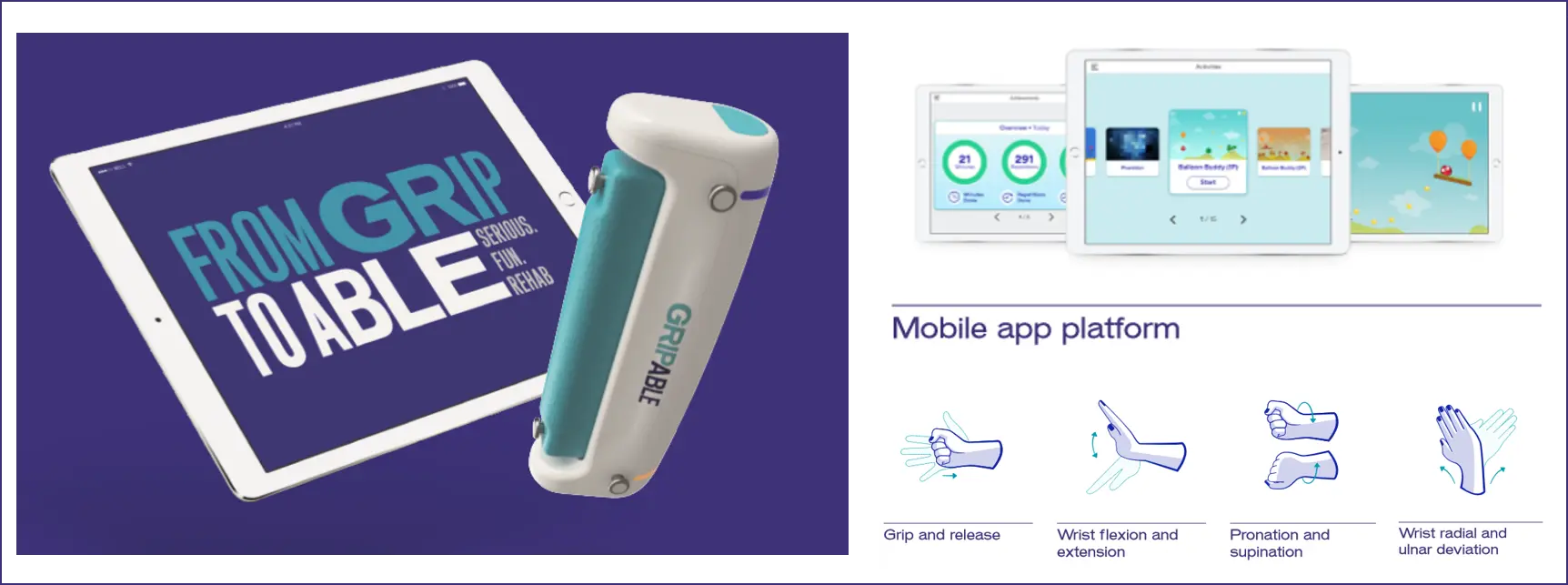Applicability of the GripAble Therapy Robot to Patients After Hand Injuries

At a glance
- Project leader : Prof. Dr. Verena Klamroth-Marganska
- Project team : Vera Beckmann-Fries, Sarah Ewald Chevalley
- Project status : completed
- Funding partner : Foundation (Stiftung für Ergotherapie Zürich), Public sector (excl. federal government) (Kantonsspital Winterthur KSW), Other (Schweizerische Gesellschaft für Handrehabilitation SGHR)
- Contact person : Martina Spiess
Description
Hand injuries account for a significant number of injury-related treatments in the emergency room and cause high costs through medical care (medical treatment and therapy) and absenteeism. Since the recovery of hand function has an influence on the quality of life, and the duration of illness and incapacity to work and is of socio-economic importance, rehabilitation is usually performed by therapists. Additionally, home training is an imprtant part of therapeutic treatment and has been shown to improve hand function and grip. In the field of neurology, the use of robots has successfully expanded the current methods of therapy. Therapy with the devices leads to the improvement of hand function and abilities in the activities of daily life. Despite the good results in neurology, there are hardly any scientific studies on the use of robots in orthopaedics and hand rehabilitation. We are convinced that the GripAble robot can improve and meaningfully supplement the therapy process of patients after hand injuries in home training. It is therefore our goal to test the acceptance, applicability and user-friendliness of the GripAble in patients with hand injuries. GripAble is a handle similar to a hand dynamometer and enables training of different movements and strength building. The device is equipped with force and movement sensors and coupled with a tablet. Through hand movements and force adjustment, the user can control games on the tablet designed for different age groups and levels. In order to individualize the therapy and to optimally challenge and motivate the user, the level of the games automatically adapts to the user's performance. The aim of the study is to determine the applicability, acceptance and user-friendliness of GripAble for patients suffering from hand diseases or injuries.